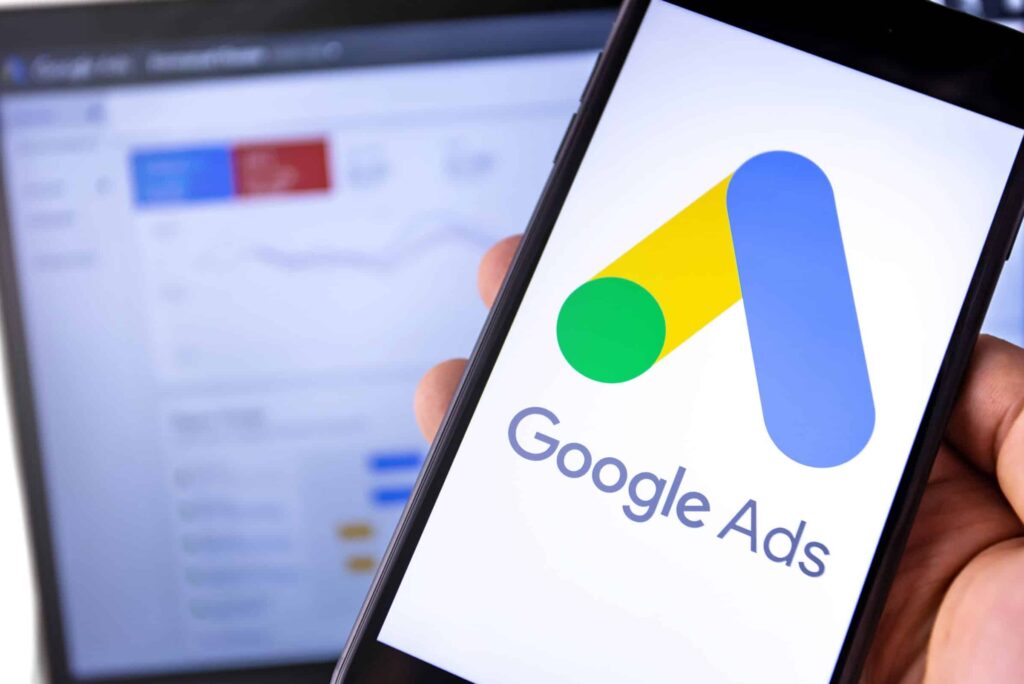Small Business Advertising Guide: Google Ads or Bing Ads?
 Reading Time: 6 minutes
Reading Time: 6 minutes
When it comes to advertising your small business online, paid search campaigns can be an effective way to reach your target audience. Two of the most popular platforms for this type of advertising are Google Ads and Bing Ads. But which one is better for your small business? In this guide, we will explore the key differences between Google Ads and Bing Ads to help you make an informed decision on where to invest your advertising budget.
Table of Contents
Understanding the Basics of Google Ads and Bing Ads
At the core of online marketing efforts, Google Ads and Bing Ads stand as two pivotal platforms, each with its unique offerings and advantages. Google Ads, which transitioned from Google AdWords, is the more prevalent of the two, enabling businesses to feature their adverts both in Google’s search results and across a diverse network of websites within the Google Display Network. This extensive reach is attributed to Google’s stronghold on the search engine market, capturing the attention of a vast audience.
Conversely, Bing Ads, which emanates from Microsoft, presents an alternative avenue for advertising. This platform ensures adverts are visible on the Bing search engine, alongside its partner sites. Although Bing commands a smaller slice of the search engine market compared to Google, it garners a dedicated user base, attributed to specific demographic preferences and industry inclinations.
Each platform is designed with the advertiser in mind, offering tools and features aimed at streamlining the ad creation process, targeting potential customers, and tracking the performance of advertising campaigns. The choice between Google Ads and Bing Ads hinges on understanding these foundational aspects, enabling advertisers to select the platform that aligns best with their business objectives and audience reach aspirations.
Evaluating Your Audience: Which Search Engine Do They Prefer to Use?
Selecting the optimal platform for your advertising efforts necessitates a deep dive into the search engine preferences of your target demographic. Google, with its commanding lead in the search engine marketplace, is the go-to for a vast majority, offering unparalleled reach across various demographics. Its extensive usage across the globe ensures that adverts placed on Google Ads are likely to be seen by a broad audience, spanning different age groups, interests, and geographical locations.
However, it would be a mistake to overlook Bing’s distinctive presence in the digital realm. Bing attracts a niche but noteworthy segment of the market, particularly resonating with an older demographic and specific sectors such as finance and healthcare. This can be attributed to the search engine’s integration with Microsoft products, which are prevalent in professional and enterprise environments, as well as its strategic partnerships that influence certain user groups’ default search preferences.

Understanding these dynamics is crucial. For businesses whose products or services cater specifically to industries or demographics that align with Bing’s user base, investing in Bing Ads could yield targeted engagement and potentially higher returns on investment. On the other hand, if your goal is to cast a wide net and tap into a more diverse audience, Google’s omnipresence makes it an indispensable tool in your advertising arsenal.
Budget Considerations: Getting the Most Value for Your Money
Navigating the terrain of advertising platforms with a limited budget necessitates a strategic approach to ensure optimal utilisation of every pound spent. Within the advertising ecosystem, Google Ads is renowned for its broad reach and potential to captivate a diverse audience. However, this extensive coverage comes with a price, typically manifesting in higher average cost-per-click (CPC) rates. The implication for small businesses is a careful consideration of budget allocations to ensure that their advertising endeavours on Google Ads do not erode profit margins, particularly when targeting highly competitive keywords.
On the contrary, Bing Ads emerges as a great option for cost-conscious advertisers. With generally lower competition levels across various industries, the platform offers more attractive CPC rates. This cost efficiency can be a crucial advantage for small businesses, enabling them to achieve better positioning for their ads at a lower investment. This presents an opportunity not only to extend the duration of campaigns within the same budget but also to experiment with a wider array of keywords and ad strategies without the apprehension of exhausting funds swiftly.
While the lure of Google Ads’ expansive reach is undeniable, small businesses must weigh this against the potential for more budget-friendly engagement and visibility that Bing Ads offers. The decision hinges on identifying where your advertising budget can be leveraged to achieve the highest return, considering the unique characteristics of each platform and the specific objectives of your campaign.
Ease of Use and Management Tools
Navigating the realms of Google Ads and Bing Ads, advertisers are met with interfaces designed for ease of navigation and a suite of management tools tailored to facilitate campaign creation and optimisation. Google Ads distinguishes itself with a comprehensive array of features, presenting advertisers with intricate targeting options and an advanced analytics suite to meticulously measure campaign performance. This in-depth functionality supports advertisers in refining their strategies to align closely with audience behaviour and preferences.
Conversely, Bing Ads offers a more streamlined experience, yet still provides powerful tools that include ad extensions and invaluable keyword research functionalities. These tools empower advertisers to enhance their ad visibility and relevance. Both platforms are engineered to assist users in efficiently managing their campaigns, from setting up to ongoing adjustments based on performance metrics. This ensures that regardless of the chosen platform, advertisers can remain agile, making data-driven decisions to optimise their advertising investments.
The Impact of Competition on Your Advertising Efforts
In the digital advertising landscape, the degree of competition faced on each platform can significantly influence both the strategy and outcome of your paid search campaigns. On Google Ads, the competitive atmosphere is notably more intense, a direct consequence of its widespread adoption and the sheer volume of businesses vying for visibility. This heightened competition often necessitates a more robust budget to secure a favourable position within search results, as bids for popular keywords tend to be higher.

Conversely, Bing Ads typically features lower levels of competition. This reduced competitive environment is primarily due to its smaller market share. However, this can be advantageous for businesses seeking to maximise their advertising efforts with a more modest budget. The lower competition on Bing can lead to more affordable cost-per-click rates, allowing for greater ad visibility without the need for substantial investment. This scenario presents an appealing opportunity for small businesses to achieve meaningful engagement with their target audience, potentially resulting in a higher return on investment.
In navigating the complexities of paid search management, understanding the impact of competition on both platforms is crucial. It shapes not only the financial aspect of your campaigns but also informs the strategic approach to achieving optimal visibility and engagement within your chosen platform.
Making the Decision: Which Platform Suits Your Business?
Deciding whether Google Ads or Bing Ads is the optimal platform for your small business requires careful consideration of several critical factors. Reflect on your target audience and their search engine preferences to ascertain where your advertising messages will be most impactful. If your customer base is broad and diverse, the extensive reach of Google may offer the visibility your business needs, albeit at a higher cost.
Conversely, for businesses aiming to connect with specific demographics or sectors, Bing’s unique user base and cost-efficient pricing could present a more tailored and budget-friendly opportunity. Evaluate your financial resources with pragmatism; while Google’s vast network promises extensive exposure, Bing offers a compelling alternative with its lower cost-per-click, allowing for more strategic keyword investments and potentially extended campaign lifespans.
The decision hinges not solely on budget constraints but on a strategic alignment of your advertising goals with the inherent strengths and audience compositions of each platform. Reflect on these considerations to guide your choice, focusing on where your advertising efforts will not only reach but resonate with your intended audience, thereby maximising return on investment.

